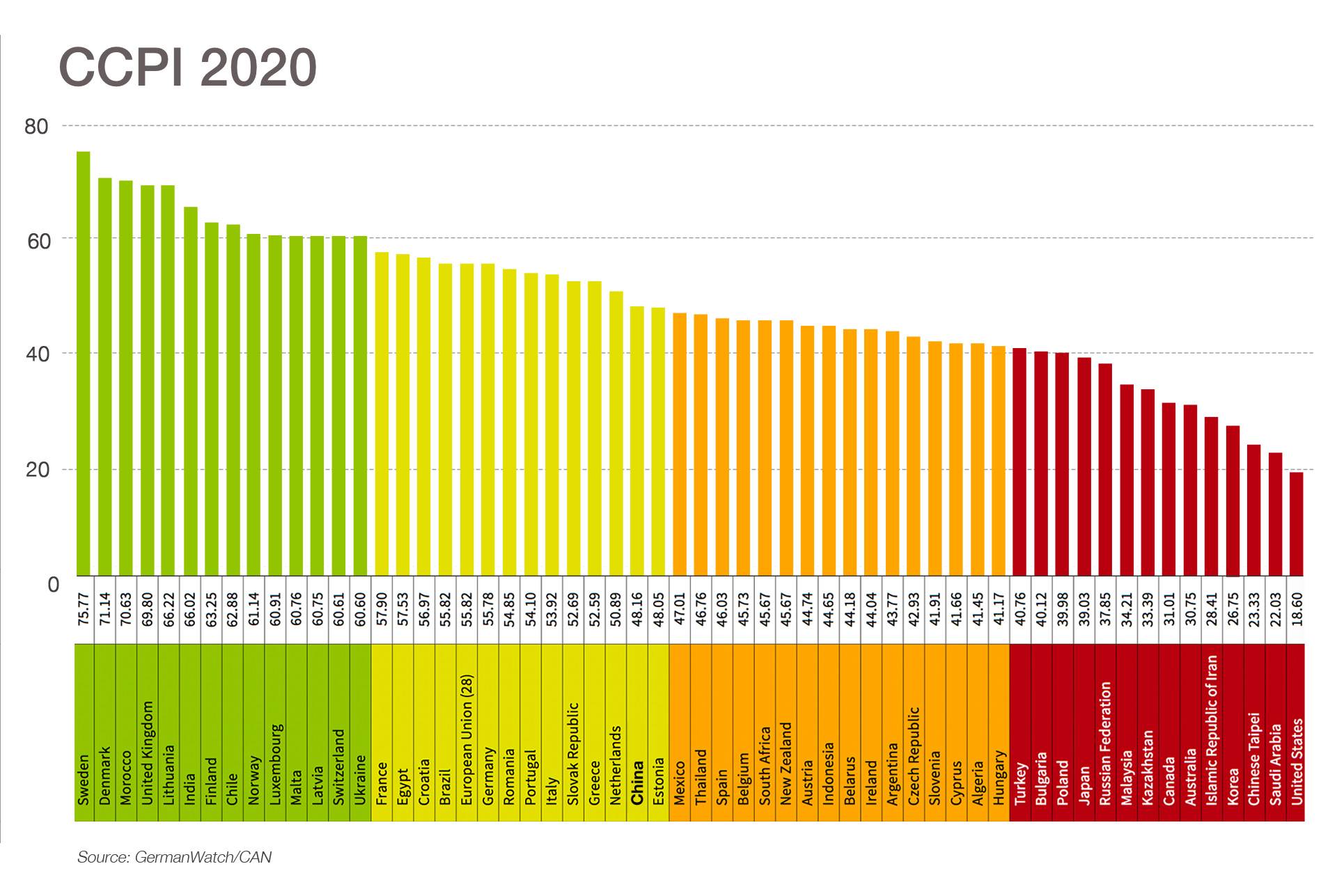
Climate Change Performance Index (CCPI) index shows rich countries not doing enough to reduce emissions. /Graphics by CGTN's Du Chenxin
Climate Change Performance Index (CCPI) index shows rich countries not doing enough to reduce emissions. /Graphics by CGTN's Du Chenxin
China's effort to tackle climate change has witnessed marginal improvement over the past year. However, a large number of rich countries continue to emit climate harming gases, said a study.
China has moved up three spots to rank 30th from last year's 33rd on the Climate Change Performance Index (CCPI) rankings released during the ongoing Global Climate Change Summit in Madrid, Spain on Tuesday.
"China exerted huge efforts to cut fossil fuels and emissions in a coordinated way, however, due to the turbulence of economy and trade still performed under expectation from the international community," said a statement from the GermanWatch and Climate Action Network (CAN).
The rankings are based on greenhouse gas emissions, use of renewable energy, energy consumption and climate policies implemented by governments to curb global warming.
Researchers pointed out that the country scores with a very good performance for its increased share of renewables in the energy mix over recent years and relatively good policy ratings, but the poor performance in emissions and energy efficiency still weighs heavily.
"If China implements its extensive plans for new coal-fired power plants, there is a risk of a severe relapse to the bottom of the ranking," they warned.
Concern over the poor performance of 'big three'
Several major polluters – Australia, Saudi Arabia and the U.S. – have failed to take strong actions to curb their emissions, the study said.
Of the 57 countries assessed, the U.S. and Saudi Arabia have been placed "very low" on the index with a rank of 61st and 60th, respectively. Australia has been ranked 56th.
"The new CCPI shows signs of a global turnaround in emissions, including declining coal consumption. However, several large countries are still trying to resist this trend – above all, the U.S.A., said Ursula Hagen, one of the authors of the report.
Researchers claimed that these three governments are massively influenced by the coal and oil lobbies, and there are hardly any signs of a serious climate policy in sight.
First three spots remain vacant
Not even a single country was found to be following the pathway to meet the Paris climate goals of reducing the emission level to limit global temperature rise to 1.5 degrees Celsius.
In the absence of adequate efforts, the first three spots on the index remain vacant. Sweden ranked 4th, Denmark 5th and Morocco 6th are the top three performers on the index.
Among the European Union (EU) countries, eight are rated high, eight low and two very low. While only two G20 countries - the UK ranked 7th and India 9th - have found a place in the "high" category; eight from the bloc are in the "very low" performer category.
"This science-based assessment shows again that in particular the large climate polluters do hardly anything for the transformational shift we need to deep emissions reductions to curtail the run to potentially irreversible climate change," said Stephan Singer, a senior adviser with CAN.